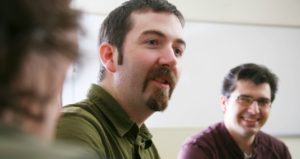
My Favorite Poems for First-Year Students
“Are those handouts for us?” my student asked, gesturing toward the copies of Shakespeare’s Sonnet 29 that I’d carried into class. “Nope,” I replied. “They’re for the Brit lit class that I teach after yours.” “Oh, OK.” he said, disappointedly.






